

THE CIVIL WAR LETTERS OF
Thomas and William Christie
Hampton Smith


Minnesota Historical Society Press
The publication of this book was supported, in part, by a gift from the George A. MacPherson Fund.
2011 by the Minnesota Historical Society. All rights reserved. No part of this book may be used or reproduced in any manner whatsoever without written permission except in the case of brief quotations embodied in critical articles and reviews. For information, write to the Minnesota Historical Society Press, 345 Kellogg Blvd. W., St. Paul, MN 55102-1906.
The Introduction previously appeared as The Christie Brothers Civil War: A Reflection of Minnesotas Experience in The State Were In: Reflections on Minnesota History, edited by Annette Atkins and Deborah L. Miller (St. Paul: Minnesota Historical Society Press, 2010) and is reproduced here by the editors kind permission.
Cover images: Top: Fair Oaks vicinity, federal battery, 1862 (LC-B811-2510A). Bottom: Gun crew, Company K, Second New York Artillery, at Fort C. F. Smith, August 1865 (LC-B817-7675). Both Library of Congress, Prints & Photographs Division.
www.mhspress.org
The Minnesota Historical Society Press is a member of the Association of American University Presses.
Manufactured in the United States of America
10 9 8 7 6 5 4 3 2 1
 The paper used in this publication meets the minimum requirements of the American National Standard for Information Sciences Permanence for Printed Library Materials, ANSI Z39.48-1984.
The paper used in this publication meets the minimum requirements of the American National Standard for Information Sciences Permanence for Printed Library Materials, ANSI Z39.48-1984.
International Standard Book Number
ISBN: 978-0-87351-781-2 (paper)
ISBN: 978-0-87351-810-9 (e-book)
Library of Congress Cataloging-in-Publication Data
Christie, Thomas.
Brother of mine: the Civil War letters of Thomas and
William Christie/Hampton Smith.
p. cm.
Includes bibliographical references and index.
ISBN 978-0-87351-781-2 (paper: alk. paper) ISBN 978-0-87351-810-9 (ebook) 1. Christie, ThomasCorrespondence. 2. Christie, William, 1830-1901 Correspondence. 3. United States. Army. Minnesota Light Artillery Battery, 1st (1861-1865) 4. SoldiersMinnesotaCorrespondence. 5. MinnesotaHistory Civil War, 1861-1865Personal narratives. 6. United StatesHistoryCivil War, 1861- 1865Personal narratives. 7. MinnesotaHistoryCivil War, 1861-1865 Regimental histories. 8. United StatesHistoryCivil War, 1861-1865 Regimental histories. 9. United States. ArmyMilitary lifeHistory19th century. 10. American lettersMinnesota. I. Christie, William, 1830-1901. II. Smith, Hampton, 1949- III. Title.
E515.81st .C47 2011
973.78dc22
2010030625
Contents
A Part in this Great Struggle
October 21, 1861-March 17, 1862
The Bullets Came like Hail
March 22-August 15, 1862
Your Poor Soldier Correspondent
September 21, 1862-April 8, 1863
No Glory in It
April 11-October 2, 1863
This Dull, Idle Existence
October 20, 1863-March 19, 1864
Enough Fighting to Satisfy Us
March 25-September 9, 1864
We Had a Lively Time for Awhile
September 15-May 27, 1865
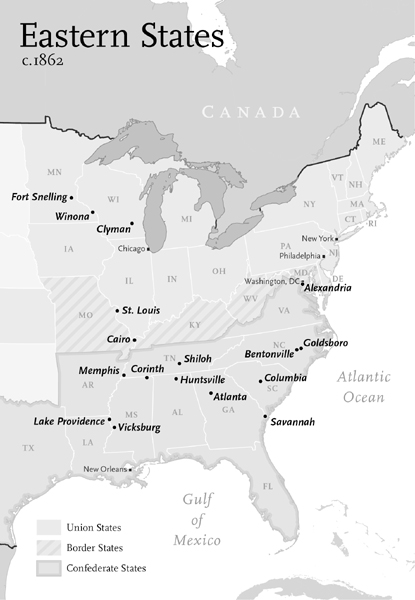
Introduction
Among the many collections of Civil War letters and diaries in the Minnesota Historical Society holdings, the letters of William and Thomas Christie stand apart. As a group these letters provide a detailed account of two brothers personal experiences in the war. They also tell the story of their unit, the First Minnesota Light Artillery. The war letters, however, are part of a much larger family collection beginning in the 1830s in Scotland and continuing on to the American West in the 1890s and to Turkey in the early 1900s (where Thomas became a missionary).
Most of the Civil War letters are those of William and Thomas Christie, half brothers thirteen years apart in age who held decidedly different world-views. (A third, younger brother, Alexander, or Sandy, joined the army very late in the war.) The fact that William and Thomas were in the same unit, one that took part in most of the major campaigns in the western theater of the war, adds further to their interest.
Like most Minnesota soldiers, the Christie brothers were originally from somewhere else. The family originated in Scotland, where the boys father, James, worked in the jute mills of Dundee. William was born there in 1830, the only child of Jamess first marriage. When his wife, Elizabeth Gilchrist, died in 1832, James moved to Sion Mills in County Tyrone, Ireland, leaving William in the care of his wifes parents. James remarried in 1836 to Eliza Reid, with whom he had three children: Thomas 1843, Sarah 1844, and Alexander 1846. William joined his fathers new family in 1840. In 1848, the entire Christie clan, including in-laws, made a carefully planned migration to America, ending up in Clyman Township, Dodge County, Wisconsin.
For the next ten years, the family, and particularly William, worked hard to develop their farm. Another child, David, was born to James and Eliza, but Eliza died in a subsequent childbirth in 1850, and James married neighbor Persis Noyes a few years later.
Being an important worker on the farm, William missed the opportunity afforded his younger siblings to attend a township school. Although his letters suggest he had little formal education, he was well read and familiar with the Bible, with Shakespeare, and with other British writers. His writing skills were poor, however, and William self-deprecatingly joked in his letters about his penmanship and made-up grammar and spelling. He was keenly aware of the shortfall in his education because his siblings were intelligent, even brilliant writers.
By 1855, when Williams younger brothers Thomas and Alexander were old enough to help their father farm in Wisconsin, William acquired land in Minnesota. He appears in the 1860 federal census as a farmer in St. Charles Township, Winona County, although the exact location of his farm is unknown.

William soon found that farming solo was a difficult undertaking. The market economy following the financial panic of 1857 was poor, and William probably lacked capital for animals and equipment. He also seems to have gotten himself into debt. Thomas joined him in the summer and fall of 1860 and again in 1861 to help with the harvest, but even the two working together had a tough go of it. Thomas wrote optimistic letters home, full of promise for a good wheat crop, but when their sister Sarah joined them in October 1861 to keep house, she put the family wise to the boys situation. Their shanty was the most miserable looking place ever I looked at, and Williams wheat harvest was poor and his expenses many, so you see he is pretty hard set, and then he has to buy a new stove for this is so smashed up it will not do, and buy beef and potatoes and butter for the winter for he had nothing, and there is no ploughing done. If he has any more debts I do not know. To make matters worse William had lost a legal dispute with a neighbor and owed a judgment of thirteen dollars. So hard set was he, Sarah wrote, that he was going to leave his claim and go away out west where he would never be heard of again if we had not come just when we did.



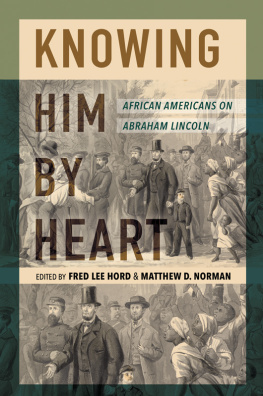
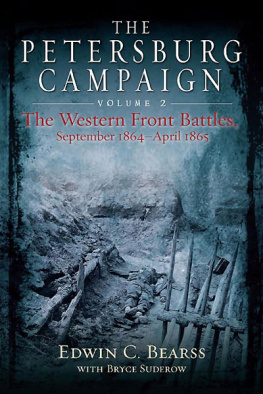
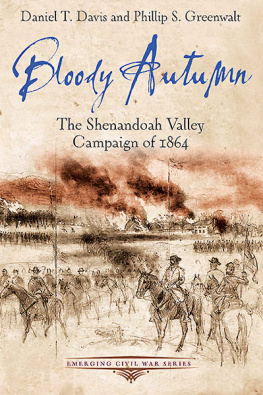
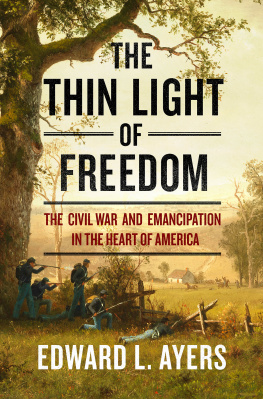
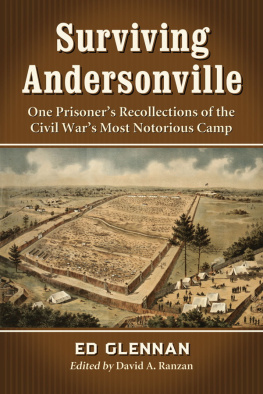
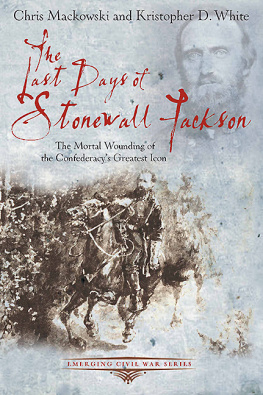
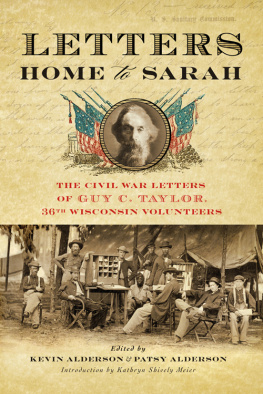
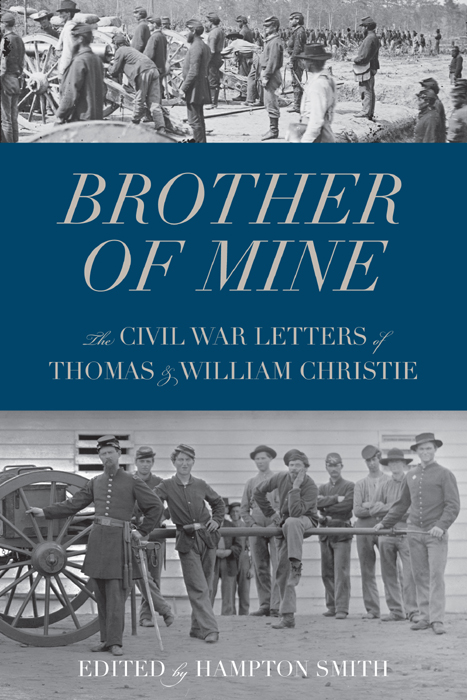




 The paper used in this publication meets the minimum requirements of the American National Standard for Information Sciences Permanence for Printed Library Materials, ANSI Z39.48-1984.
The paper used in this publication meets the minimum requirements of the American National Standard for Information Sciences Permanence for Printed Library Materials, ANSI Z39.48-1984.
